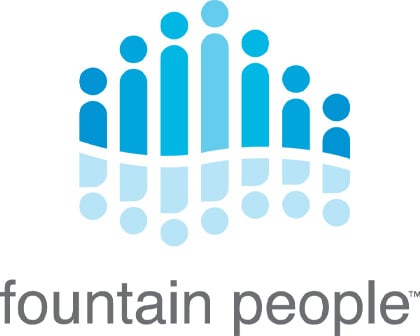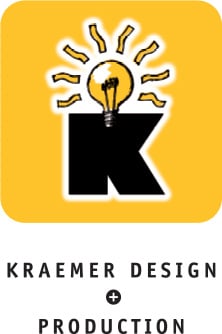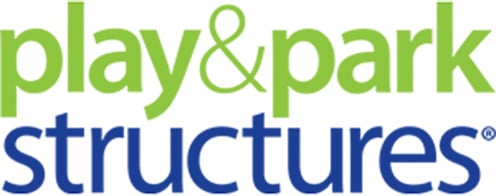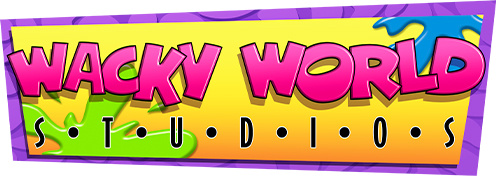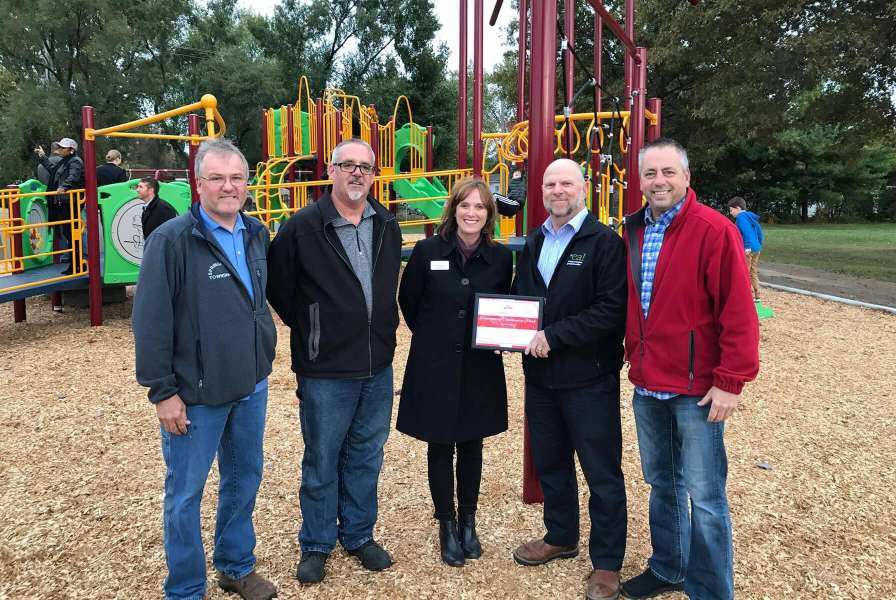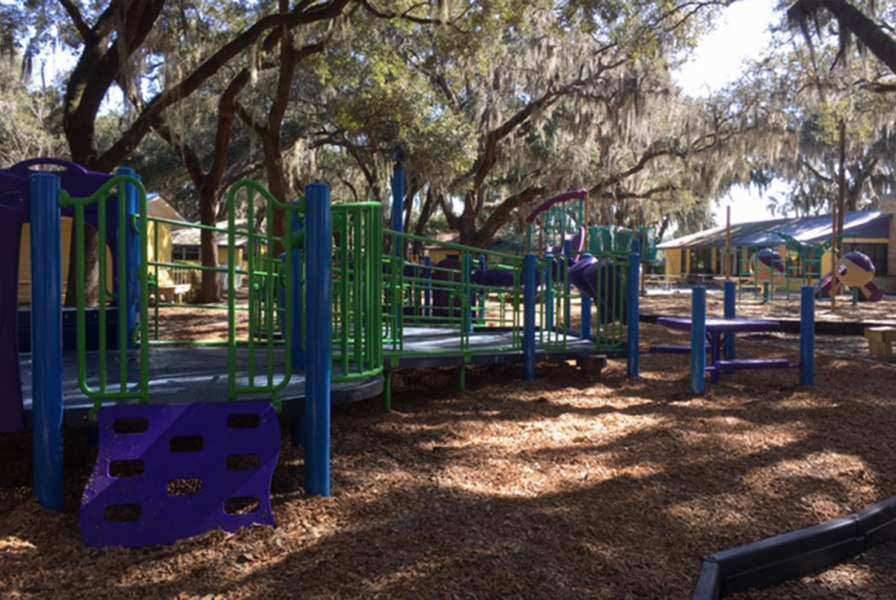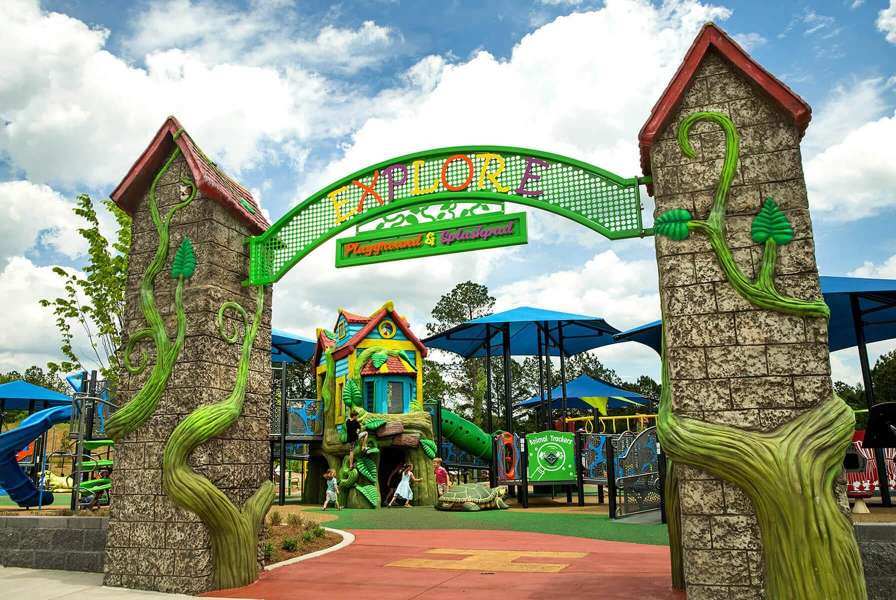- Home
- Resources
- Programs Into Practice
- Inclusion
Explore Inclusion
Inclusion embraces the mindfulness that other people may have a reality different from your own. Learn how to intentionally plan public spaces for the success of everyone to help ensure the physical and social inclusion of people of all ages and abilities.
Related Resources
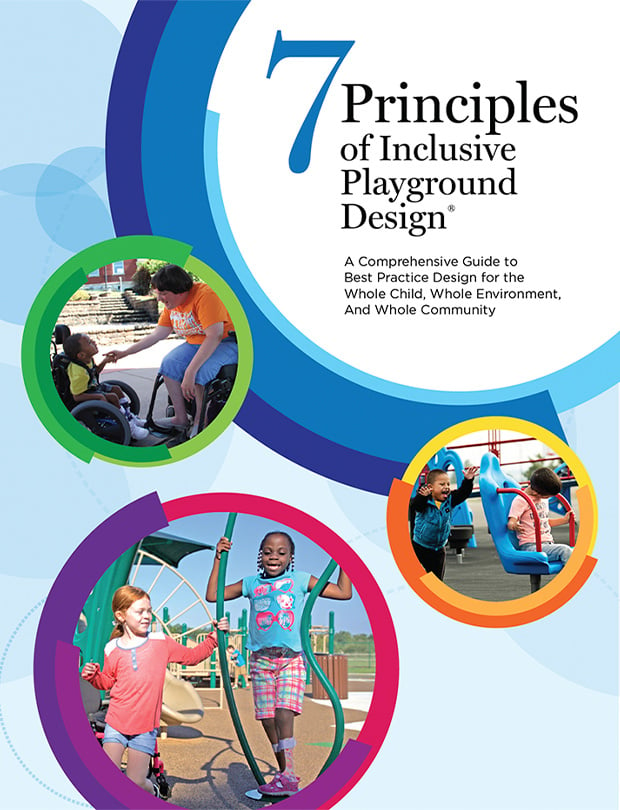
7 Principles of Inclusive Playground Design
Equitable Play Experiences for All People
A comprehensive design program to create research based play environments for people of all ages and abilities through intentional design for physical, cognitive, communicative, social/emotional, and sensory development.
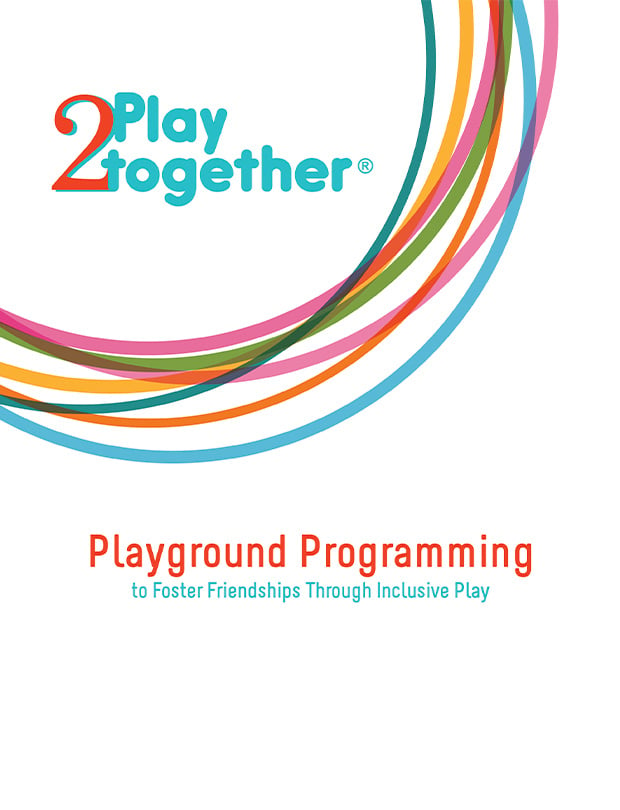
2Play Together®
2PlayTogether offers a valuable resource striving to make a difference in inclusive playground play and creating communities that care through character education. This resource equips programmers with tips and activities that will promote play, understanding, and fun between children with and without disabilities.
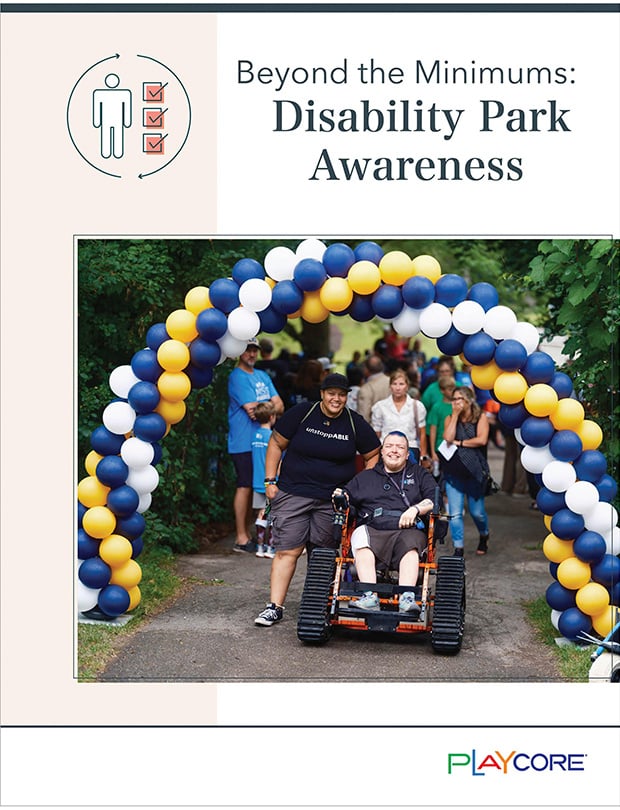
Beyond the Minimums
This guidebook provides a comprehensive approach to designing parks that are truly inclusive, ensuring that people of all abilities can enjoy, navigate, and connect with the entire space. Rather than focusing on accessible features in isolation—this resource encourages planners, designers, and community leaders to consider the whole park experience. From arrival and parking to trails, restrooms, play areas, signage, and social spaces, every element contributes to a welcoming, comfortable environment.
The guide emphasizes universal design principles, offering practical strategies to create seamless transitions, and flexible spaces that accommodate a wide range of physical, cognitive, and sensory needs. It highlights the importance of community input, especially from people with disabilities, in shaping spaces that reflect real experiences and foster a sense of belonging.
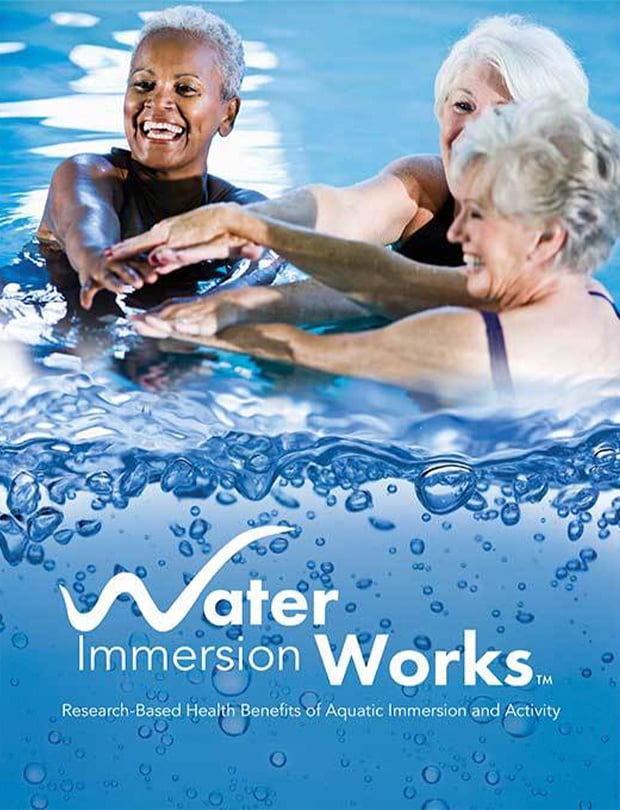
Water Immersion Works®
Water Immersion Works® is a unique aquatics vignettes collection by some of the most respected aquatic scholars. The publication highlights the many research-based benefits of water immersion and activity, how it improves our health, and how it empowers communities to advocate for the overall health of every individual, uniting families, and building communities. Water immersion topics include biological benefits, increasing energy, strengthening muscles, promoting balance, and benefits related to cardio metabolic responses to name a few. Aquatic scholar contributors include Thomas Lachocki, Ph.D., Bruce Becker, M.D., Steven Blair, P.E.D., Eadric Bressel, Ph.D, Paul Chantler, Ph.D, Dennis Dolny, Ph.D., Elizabeth “Betsy” Nagle, Ph.D., Jacquelyn Ann Nagle, Ph.D., and Hirofumi Tanaka, Ph.D.
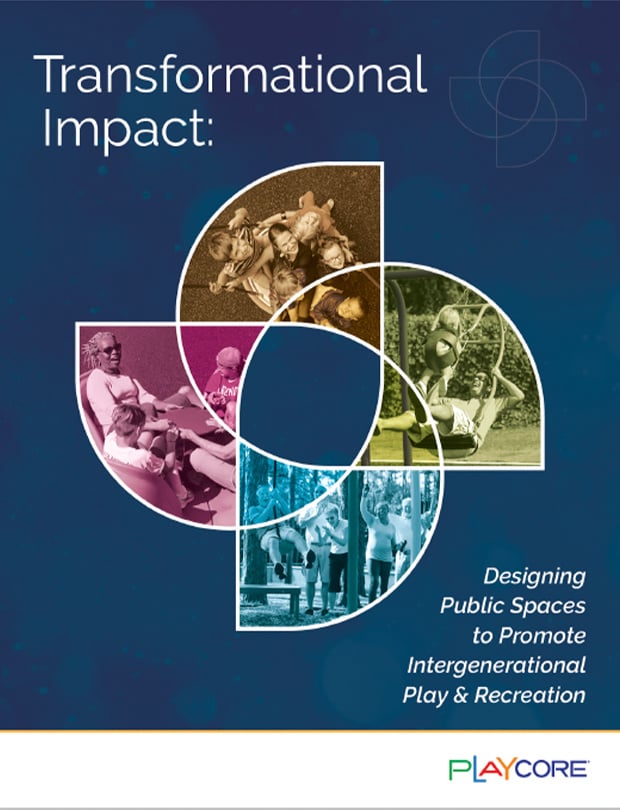
Transformational Impact™
While most recognize the importance of intergenerational settings, where the physical environment is designed to accommodate the physical and psychological needs of all people, there needs to be equal consideration to the ways these environments provide opportunities for meaningful engagement between members of different generations.
The book shares evidence-based research on the importance of intergenerational park and recreation settings, provides a rich overview on designing settings that can promote intergenerational activities, gives an overview of marketing, programming, and evaluation tactics, and shares a variety of different case studies where communities have created successful intergenerational environments.
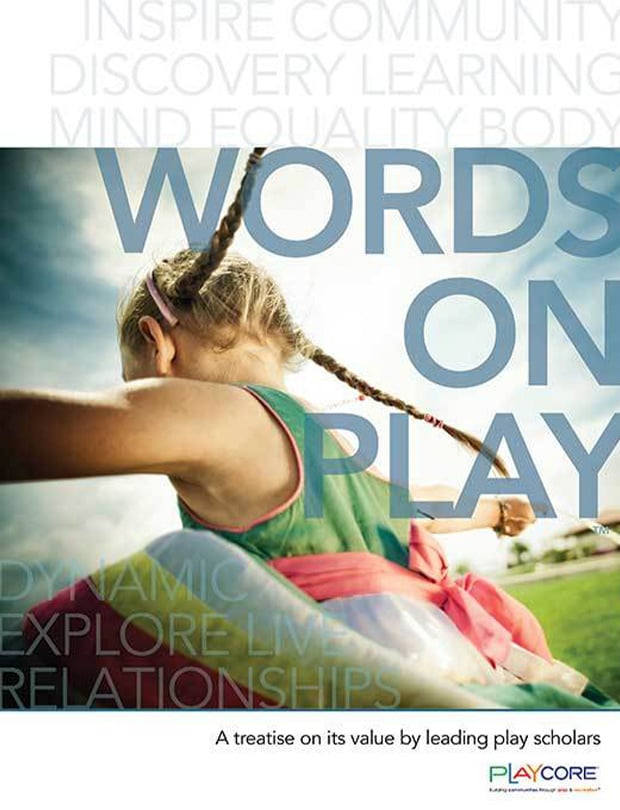
Words on Play™
Play is the foundation for learning, it is critical for healthy physical, social, emotional, and intellectual development. Deeply committed to promoting the value of play, PlayCore is proud to bring together some of the world's most respected play scholars- our friends, mentors and inspirational partners-to share their thoughts, the research-based evidence, and their collective, inspirational "words on play" that empower us all to advocate for the many critical benefits of play.
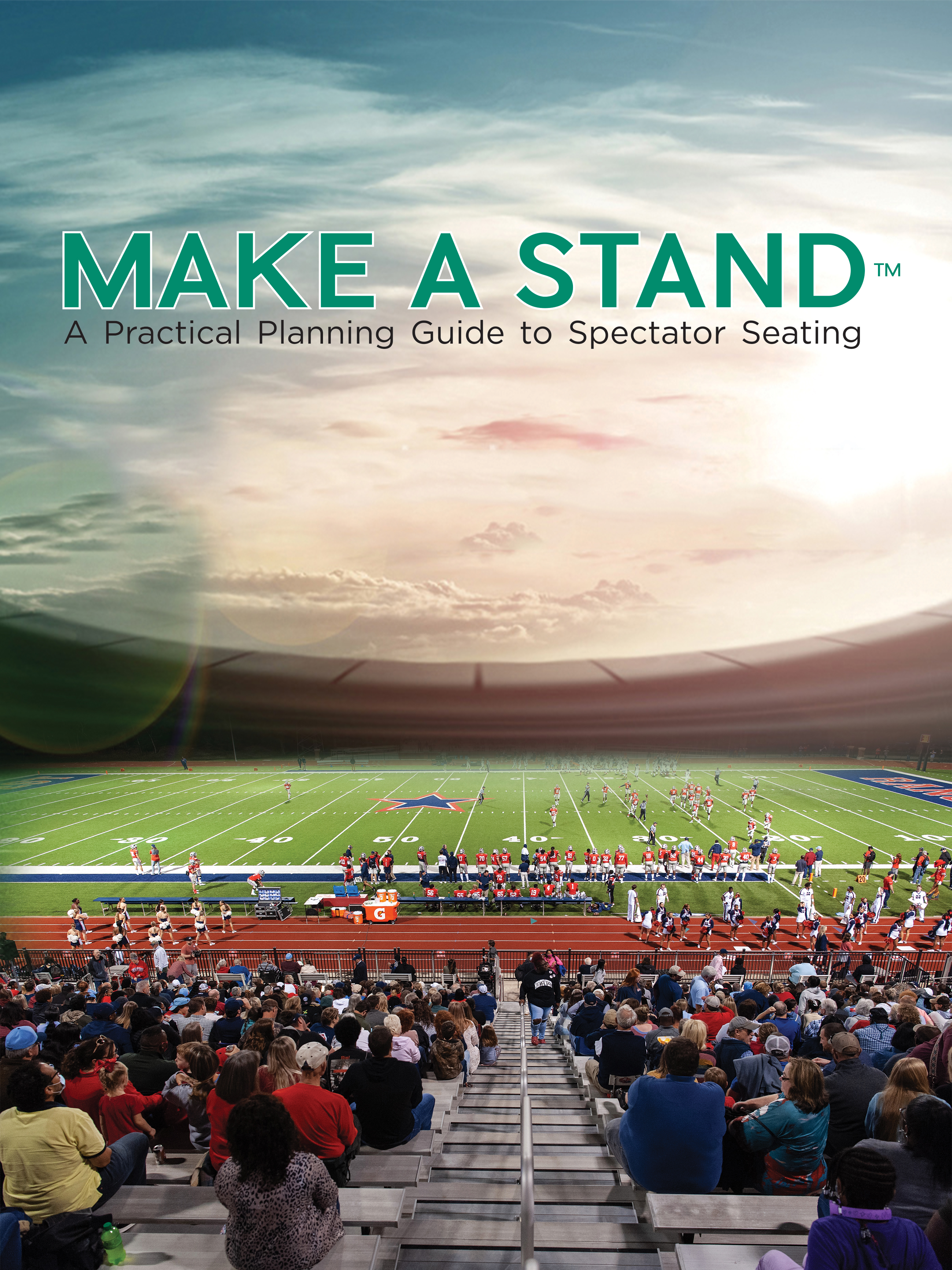
Make a Stand®
Spectator seating is an important asset within a city or region for a variety of reasons. Whether one is talking about a professional franchise or the local high school team, community events and the locations in which they are held have a galvanizing effect on communities.
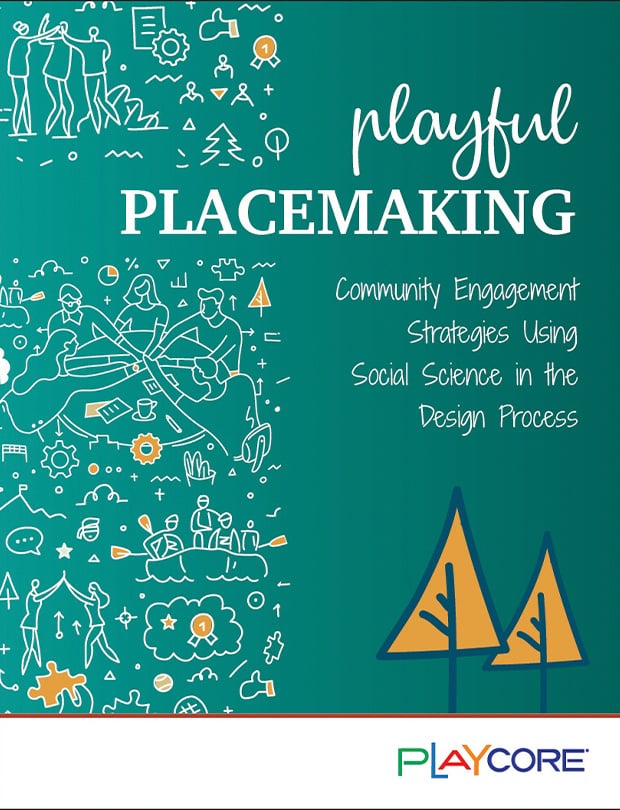
Playful Placemaking
Community Engagement Strategies Using Social Science in the Design Process.
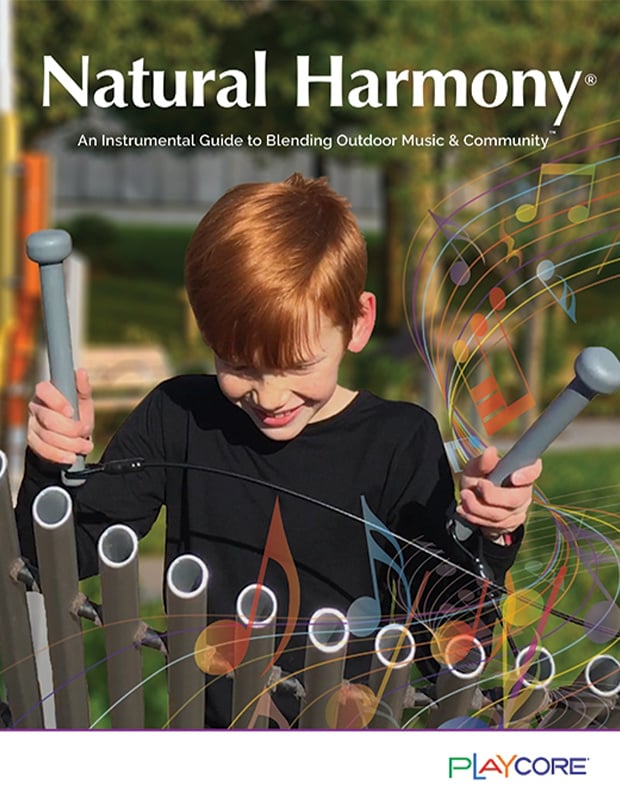
Natural Harmony™
Music is an expressive language that is woven through the cultural fabric of generations and civilizations. Recent brain-based research has explored the powerful combination that music and nature has on our physical, mental, and emotional health, and the collective benefits that build more harmonious communities.
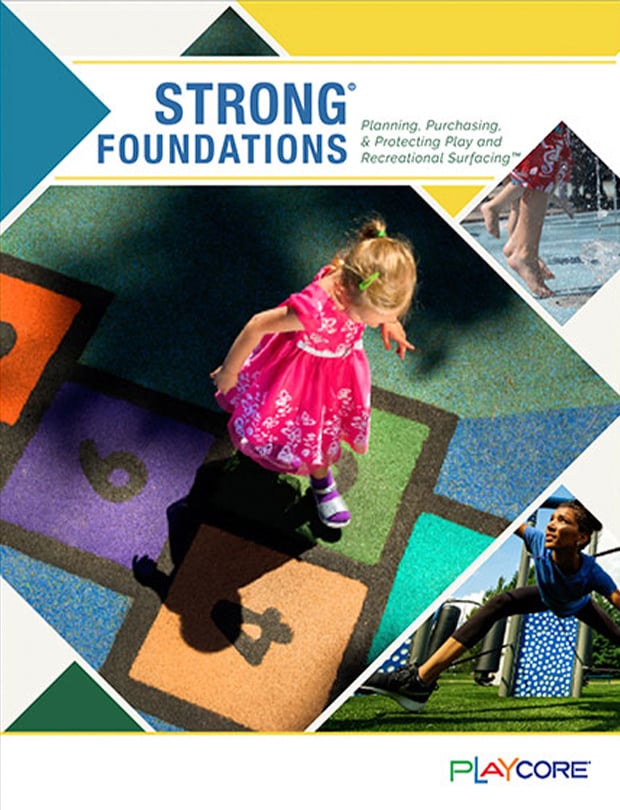
Strong Foundations®
Choosing an appropriate playground surfacing is one of the most important factors in developing a safe outdoor play environment. This useful resource was created to raise awareness about some considerations to make when planning, purchasing, and protecting your playground surfacing investment. Case examples are highlighted to provide a comprehensive overview on the features and benefits of the variety of types of safety surfaces available. Considerations are also explored that can further enhance play value at your parks and playgrounds. The guide offers planning checklists, resources, and inspection tools to help assist in simplifying the selection, installation, and maintenance process to ensure the safety and enjoyment of users.






